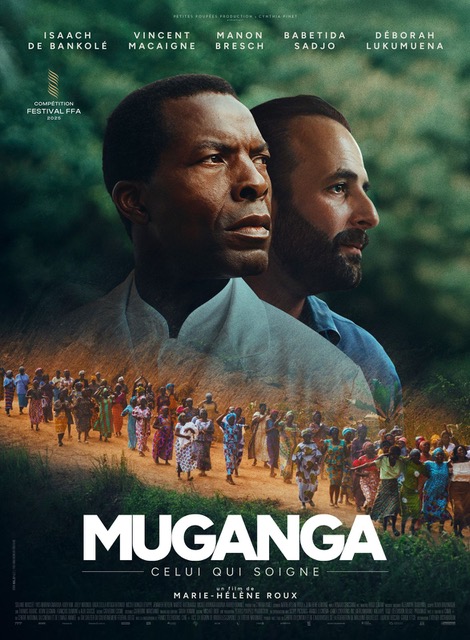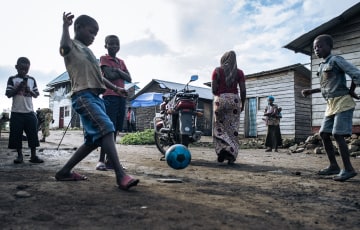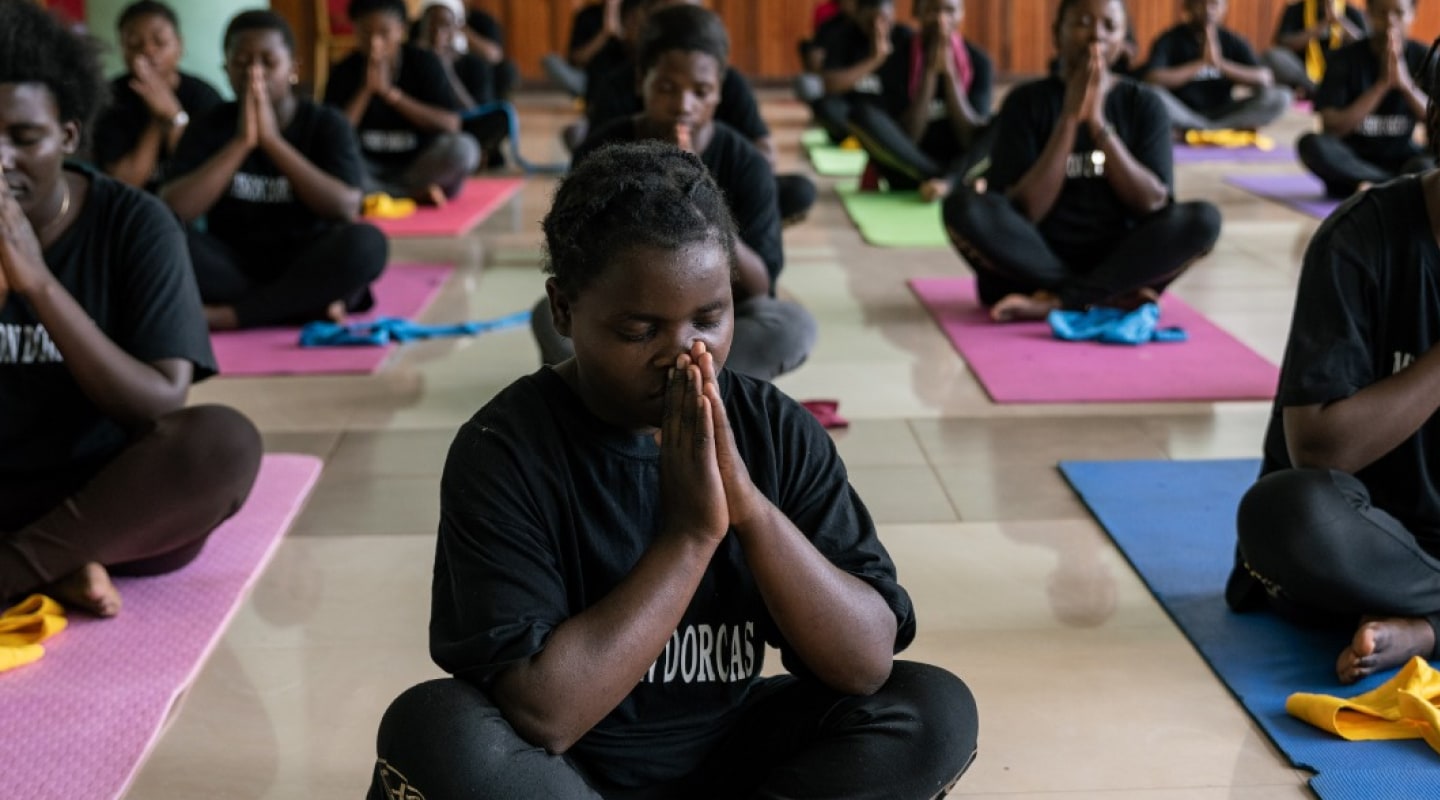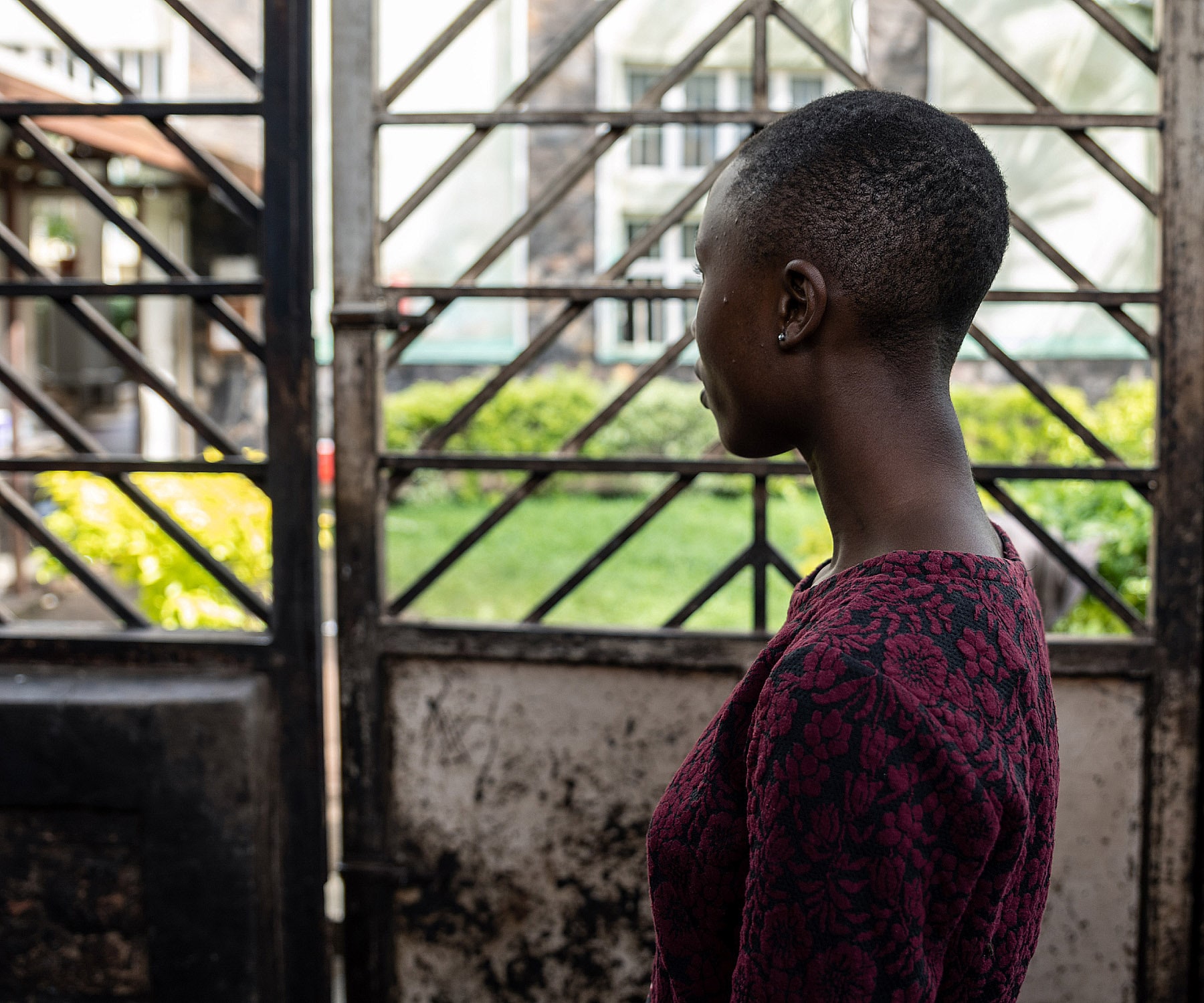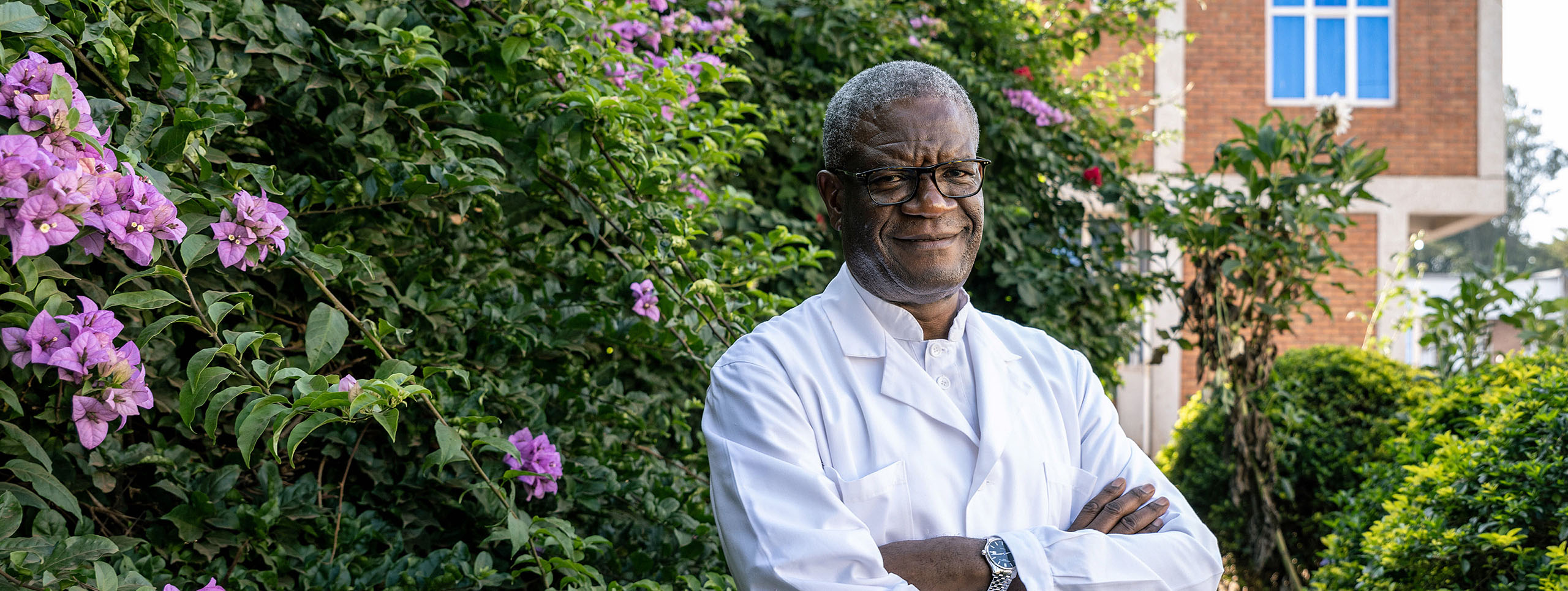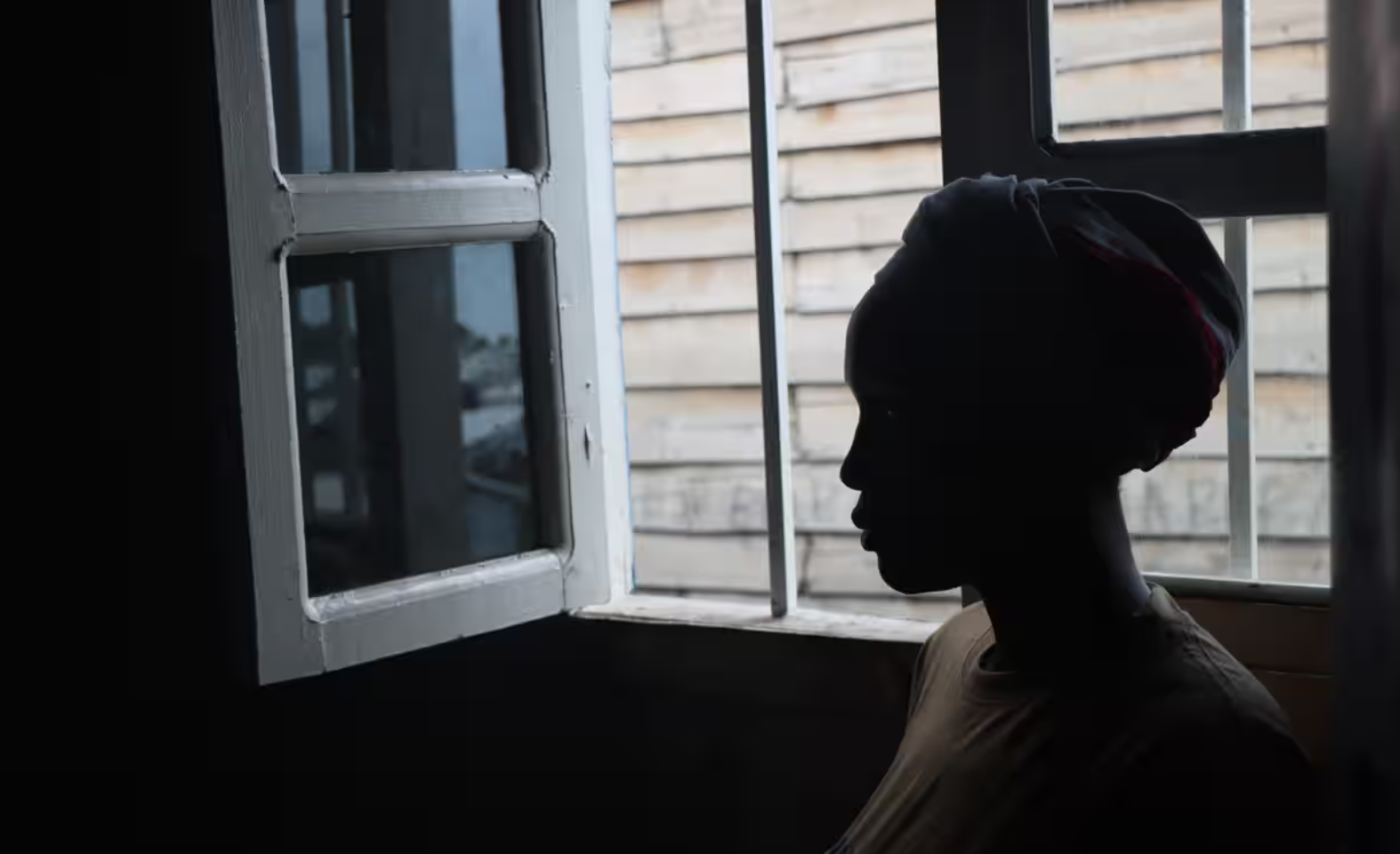Written by: Rosine Sanginga
Panzi’s Youth Ambassador Program is an opportunity for students, young professionals, and emerging advocates to learn more about conflict-related sexual violence (CRSV) and Panzi’s work. Two of the main components of the program are learning how to be effective advocates against CRSV in DRC and around the world and learning how to create and execute successful fundraisers.
Rosine, an ambassador from our first cohort, details her experience for us below and provides some helpful advice for others considering the program.
Advocacy & Allyship
I went into the Youth Ambassador Program with a not-so-straightforward question. A question that pushed me to seek answers outside of the discursive labels that pin Eastern DRC down as the ‘war-torn, rape capital of the world’. And so I found myself repeatedly thinking through how we can begin to speak to the intricate economies of sexual violence and displacement in select regions of Eastern Congo without reproducing the very violence therein.
Now that we have come to the end of the program, I see that my inquiry was met with several responses. Hearing the lived experiences of certain Congolese survivors first-hand poignantly enriched my understandings of violence, peacekeeping, rehabilitation, holistic healing, dispossession, artisanal mining and the like (the list is endless). YAP indeed gave us the vocabulary with which to articulate the ills of sexual and gender-based violence in ways that do not muffle or erase the voices of survivors.
Like many of my fellow ambassadors, I learned that there is no single remedy or fix vis-à-vis CRSV and its repercussions. From one angle, it may seem fitting for us to prioritise certain mechanisms of transitional justice over others, for example. However, all throughout our sessions, our guest speakers all stressed that it remains essential to ensure that the notions of justice we centre first and foremost align with the needs of survivors. We found that for many of those we were privileged enough to speak with, monetary reparations do not suffice. Put differently, no amount of money can reverse the pain and suffering endured. For others, centering creative practices such as beading opens up further possibilities that transcend the legal aspects of reintegration. YAP thus served as a platform for us to enter into conversation with the communities in question ethically. As such, it didn’t take too long for us to grasp that CRSV is not linear. Ever stopped to think of how violence does not necessarily end when a given conflict ends? In one of our sessions, our guest (a survivor) shared that the stigma attached to women/girls who are raped and to children born of rape subtly perpetuates a further layer of violence, even in post-conflict settings. The absence of conflict should not, therefore, mask day-to-day acts of violence.
Our advocacy was informed by the everyday practices, activisms, and discourses of survivors and community workers who daily refuse the gendered devaluation of certain (Eastern) Congolese women.
The more the merrier
“The more the merrier” very quickly became a go-to phrase for those of us planning fundraisers and webinars behind the scenes. More than a go-to phrase, however, it became a commitment and a strategy. With each Youth Ambassador event, we wanted to engage more and more people from different walks of life. Despite being from different cultural, educational, and professional backgrounds, Panzi’s Youth Ambassador Program (YAP) brought us together under mutual interests.
Whenever it came time to reach out to guest speakers, potential donors, and loved ones, we sought to piece together a mosaic of Congolese survivors of conflict-related sexual violence (CRSV); legal practitioners; holistic care experts; psychologists; medical doctors; partner organisations; students; and peers among many others. The discussions that this mixing sparked led to pockets of hope and advocacy.
All in all…
I would say my biggest takeaways from the program are as follows …
- An ally (in any capacity) should always check that they are not speaking over the voices of the implicated individuals or communities, or employing saviourist tones when speaking on behalf of those directly affected.
- The knowledge of Congolese women who have been sexually violated is valid, beautiful, and ground-breaking.
A few dos and don’ts for those looking to join the next cohort
Do:
- Take a few minutes to research the work Panzi Foundation does. You will be amazed at how many pillars and programs Panzi offers! Doing so may also give you a better feel of the areas you may want to focus on as an incoming ambassador. Panzi’s website, film documentaries , and monthly newsletters will be of great help to you.
- Think outside of the box. The Program welcomes a whole lot of dynamism and creativity. Your unique set of skills will most likely heighten your reach. How best can you appeal to those with little or no knowledge of the cycles of violence in Eastern DRC and beyond?
- Be ready to expand your network. I for one have left the program with an added bonus of a few new friends.
- Feel free to reach out to us. Many of us are open to share what we have taken away from the last few months of being immersed in the Youth Ambassador Program
Do not:
- Hesitate to apply, even if you feel you are not in a field that neatly fits into the Panzi puzzle. Over the course of YAP, I got to (a) learn from and (b) collaborate with fellow ambassadors in various fields of work and study. The interdisciplinarity of Panzi – and of YAP by extension – allows for a beautiful mixing of expertise and interest – whether it be Medicine or Film. So, do apply. The more the merrier!
Rosine is from Bukavu, DRC, and is currently studying an MSc in Development Studies and Gender Studies at the School of Oriental and African Studies (SOAS), University of London. In the future, Rosine hopes to contribute to the work being done to promote women’s well-being and full participation in all fields across sub-Saharan Africa. About her YAP experience, Rosine said:

“YAP has particularly shed light on various ways in which to mobilise sons, daughters, and friends of the DRC. I am confident that the knowledge I have acquired herein will inform my work moving forward.”
– Rosine Sanginga
